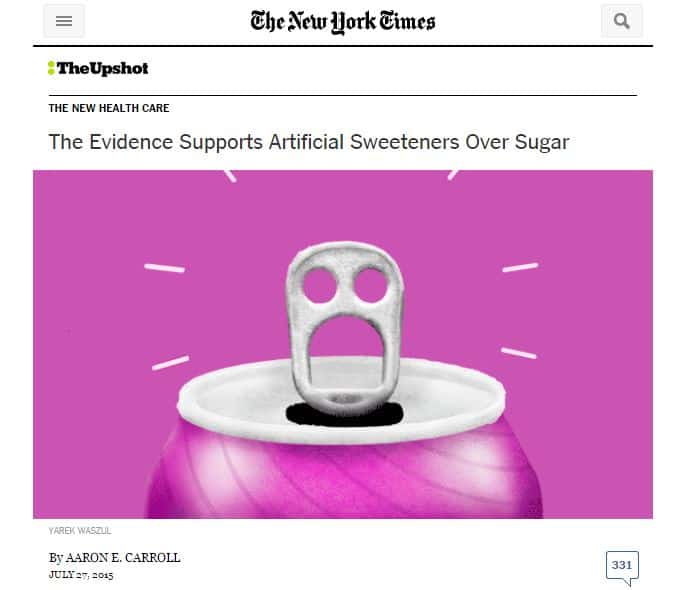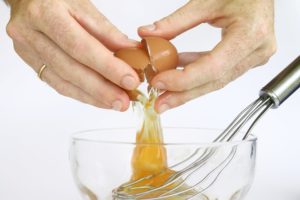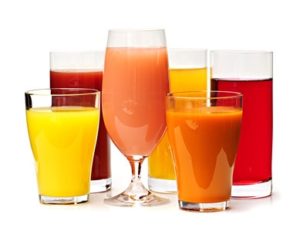Jill sent me a link to this New York Times article asking for my take.
The author’s friends are engaged in what he feels to be a nonsensical debate over whether artificial sweeteners are better or worse for you than sugar. “There appears to be a correlation between sugar consumption and health problems,” he states. “None can be detected with artificial sweeteners.” Continue reading “Diet soda vs regular soda? There’s a third option”





